As we look forward to the next chapter, we’re thrilled to welcome aboard our new Executive Director, David Clutter!
We recently sat down with David so you could hear more about his background and thoughts on WisConservation.
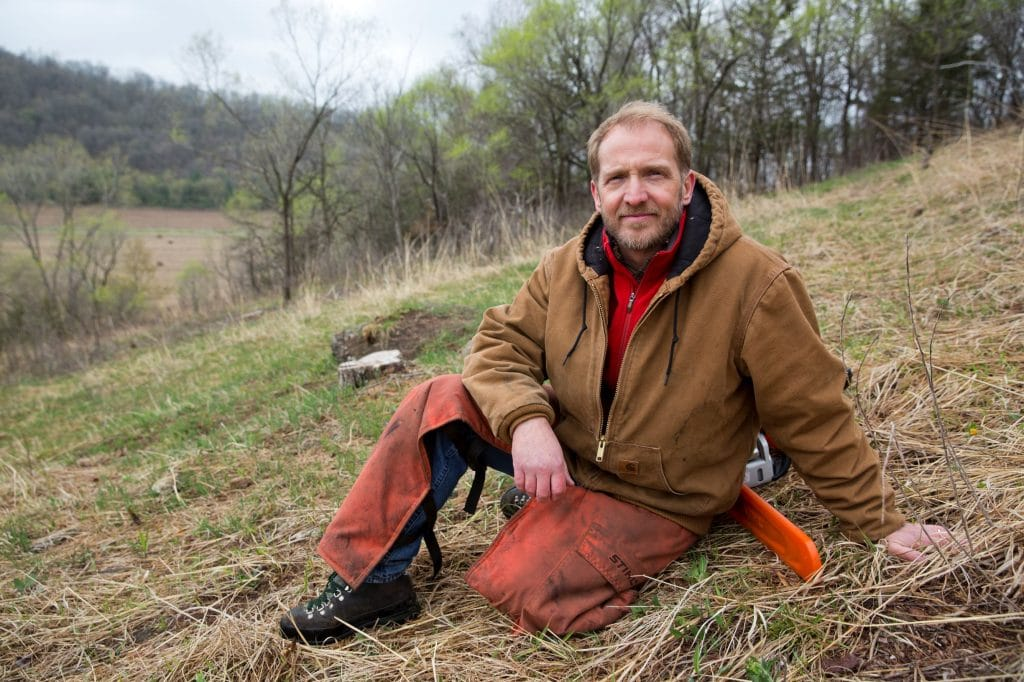
David Clutter, Executive Director of the Natural Resources Foundation of Wisconsin. Photo by Mark Hirsch
What inspired you to pursue a career in conservation?
I’ve always felt that my early experiences fishing with my grandfather in the Driftless Area had a profound effect on my decision later in life to pursue natural resources conservation. He was an incredibly patient and thoughtful mentor, and someone who could have taught the “Zen of Fishing.”
One day while walking together in the Apple River, he suddenly turned around and put a finger to lips to shush me. I had no idea what he was doing, but it turned out he had spotted a red-horse sucker that had its nose pointed upstream and into the current. In one motion he shot both hands into the water and came out with a wriggling two-pound fish. I was in awe. This experience, and others like it, instilled a love of the natural world in me that led me to pursue a career in conservation.
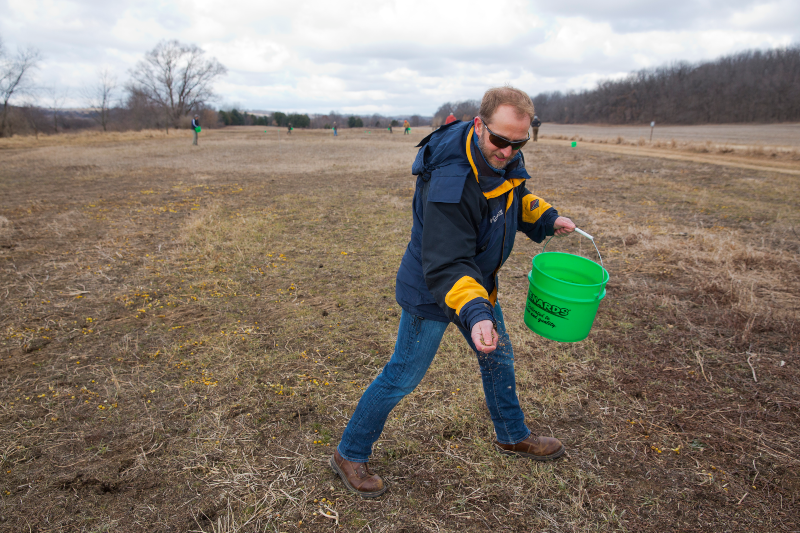
Dave planting a mix of native prairie seed with staff and volunteers at our Erickson Conservation Area in Argyle, WI. Photo credit: Mark Hirsch
You’ve worked in the conservation field for over 25 years now – can you share more about your background?
I have a Master of Science in Environment and Resources from the University of Wisconsin-Madison, with an emphasis on collaborative conservation, land trusts and policy/program implementation. My master’s thesis focused on implementation of Wisconsin’s Nonprofit Component of the Knowles-Nelson Stewardship Program.
For the previous nine years I served as executive director of the Driftless Area Land Conservancy. I was also program director for The Conservancy Fund, project coordinator & research assistant for Gathering Waters Conservancy, and director of land protection for the Natural Land Institute.
And between 2004-2010 I worked the Natural Resources Foundation of Wisconsin as the director of Wisconservation Corps & Lands Programs. It’s very exciting to be back working with colleagues and friends, some familiar and others new. A bit of a homecoming for me.
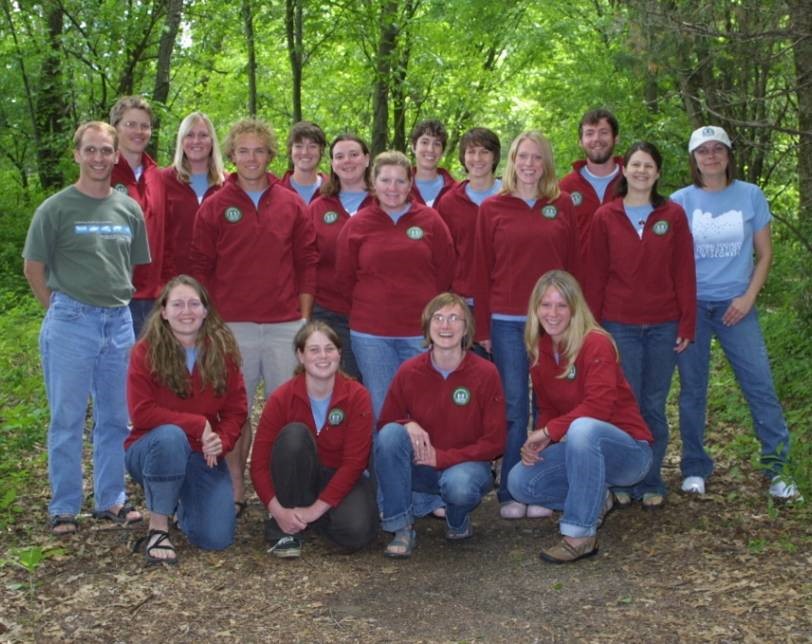
David Clutter (far left) with Wisconservation Corps & Lands Programs volunteers. Photo by Jeffrey Potter.
What are you most excited for as the Foundation’s new executive director?
To work with such outstanding and committed board, staff, conservation partners and members and to protect our state’s most imperiled wildlife and natural communities. I feel a real sense of urgency to do all we can, as soon as we can, to protect, restore and sustain Wisconsin’s biological diversity.
At times I’ve felt somewhat disheartened that previous generations didn’t do more to protect the beauty and diversity of our natural world; however, over time I’ve come to realize that they had very good reasons for developing our state and economy. But with advances in science, we know that there are many ways to square financial sustainability with ecological sustainability. We just need to be open to working together toward solutions that do not further undermine our ecological systems.
And the time to do so is now. We need to prioritize restoring our natural systems and protecting our remaining high-quality resources. Together we can create a more beautiful, sustainable, and ecologically rich future for generations to come.
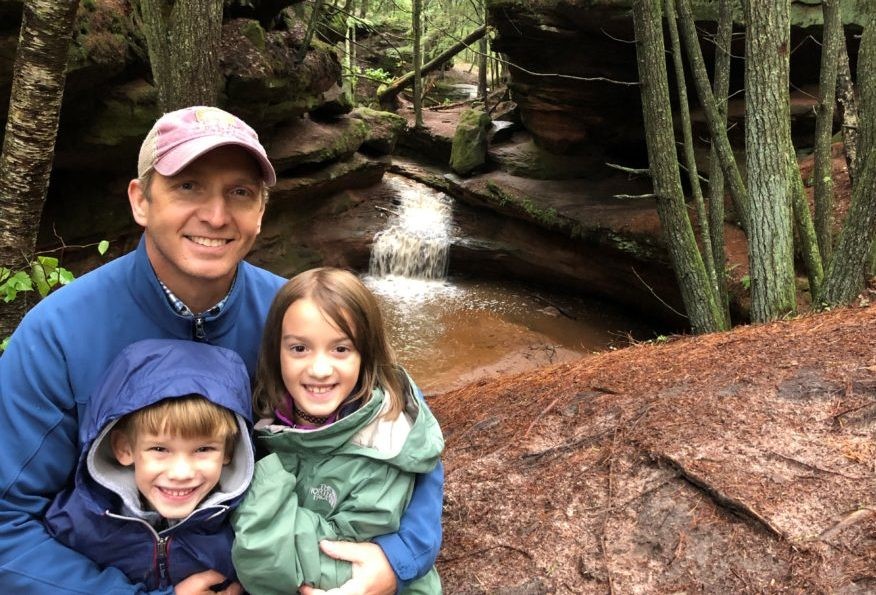
David Clutter and his children Colette and Willem at Houghton Falls State Natural Area in Bayfield, WI.
What are some of the challenges facing conservation in Wisconsin?
As a conservation community we must have a clear understanding of how a changing climate will impact our natural resources, and how to mitigate those impacts. Whether it’s an increase in precipitation, longer growing seasons, more intensely cold winters or new pest populations, we need to get out in front of this change if we’re going to protect the unique lands, waters and wildlife of our state.
We’ll need to develop effective conservation strategies for addressing these challenges and secure the financial capital to address such significant, multi-layered threats.
As a society, we have our hands full. But the sooner we focus on solutions the better. We’ve seen time and time again that when we invest in conservation, it makes a difference.
What keeps you inspired about the work you do?
My kids. I want them to know that I did all I could to leave a world that is more beautiful, diverse, and healthy than the world I grew up in.
I’m committed to doing better for my kids, and for the generations of other kids out there. We all deserve a natural world that inspires and sustains us.
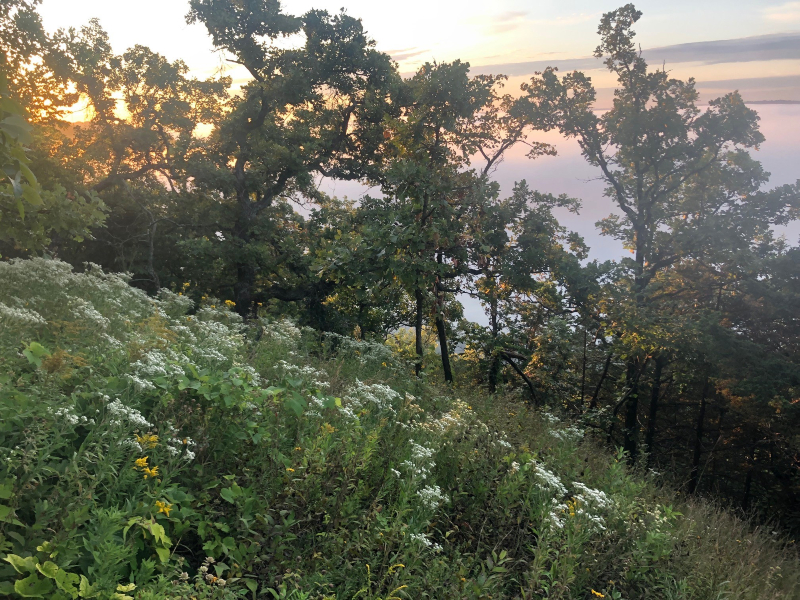
David Clutter’s property on the Wisconsin River. Photo by David Clutter.
Finally, what are some things you like to do outside of work that keep you positive and focused?
My wife and I own a small six-acre bluff property near the Wisconsin River, and we’ve spent the last three years restoring the prairie and oak savanna remnants on site. It’s our release, our meditation. We get a great workout, think of nothing but what’s in front of us, and the benefit of seeing native plants and wildlife make a comeback.
Written by Jaime Kenowski, Communications Director